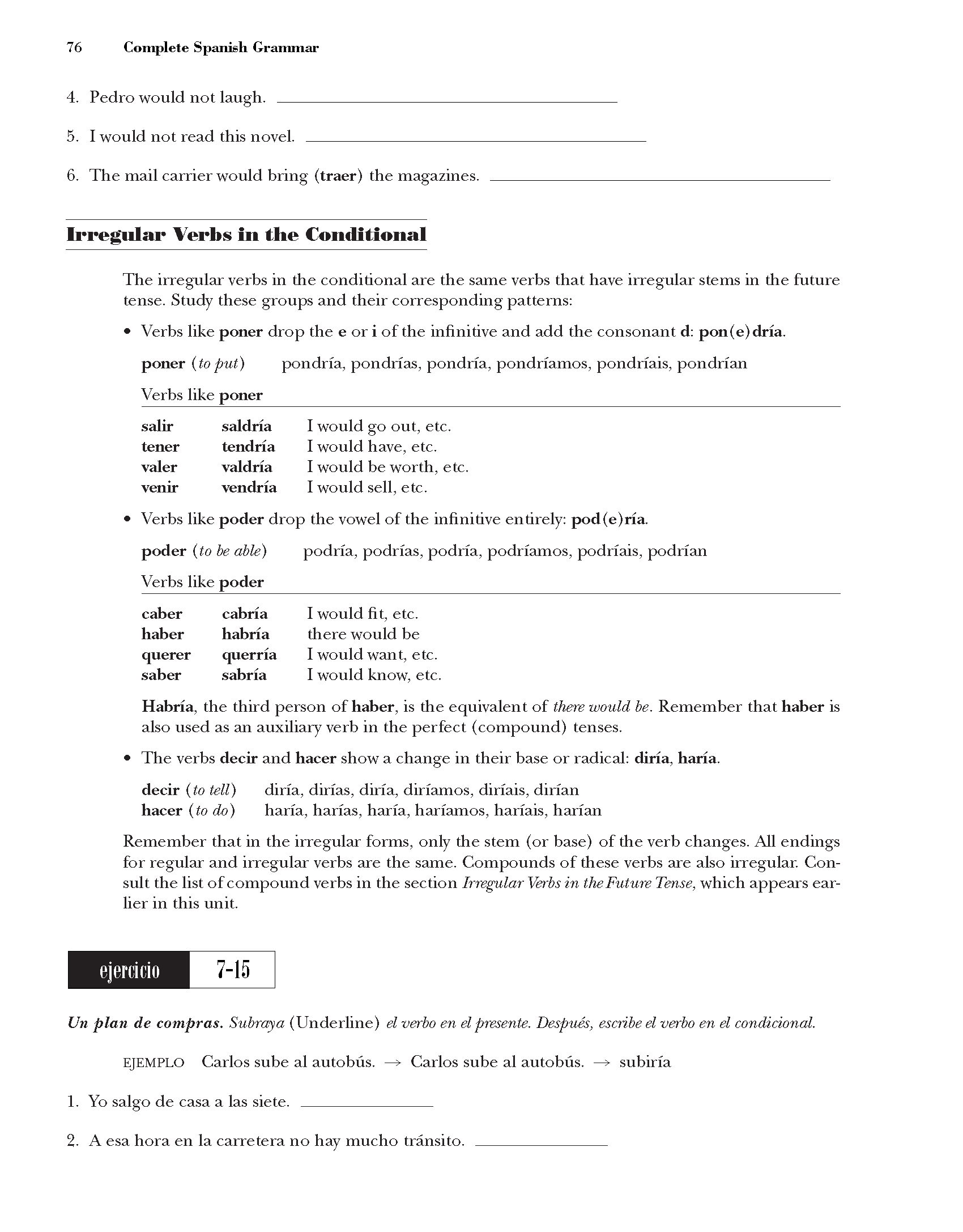CSG087

76
Complete Spanish Grammar
4. Pedro would not laugh. _
5. I would not read this novel. _
6. The mail carrier would bring (traer) the magazines.
Irregular Vepbs in the Conditional
The irregular verbs in the conditional are the same verbs that have irregular stems in the futurę tense. Study these groups and their corresponding patterns:
• Yerbs like poner drop the e or i of the infinitive and add the consonant d. pon(e)dria. poner (to put) pondria, pondrias, pondria, pondriamos, pondriais, pondrfan
Yerbs like poner
salir saldria
tener tendria
valer valdna
venir vendria
I would go out, etc.
I would have, etc.
I would be worth, etc. I would sell, etc.
• Yerbs like poder drop the vowel of the infinitive en tirely: pod(e)ria.
poder (to be obie) podria, podrias, podria, podriamos, podriais, podrian Yerbs like poder
caber
haber
querer
saber
cabria I would fit, etc.
habria there would be
querria I would want, etc.
sabria I would know, etc.
Habria, the third person of haber, is the equivalent of there would be. Remember that haber is also used as an auxiliary verb in the perfect (compound) tenses.
• The verbs decir and hacer show a change in their base or radical: diria, haria.
decir (to tell) diria, dirias, diria, diriamos, diriais, dirian hacer (to do) haria, harias, haria, hariamos, hariais, harian
Remember that in the irregular forms, only the stem (or base) of the verb changes. Ali endings for regular and irregular verbs are the same. Gompounds of these verbs are also irregular. Gon-
sult the list of compound verbs in the section Irregular Verbs in the Futurę Tense, which appears ear-lier in this unit.
ejercicio
Un plan de compras. Subraya (Underline) el verbo en elpresente. Despues, escńbeel verbo en el condicional. EJEMPLO Garlos sube al autobus. Garlos sube al autobus. subiria
1. Yo salgo de casa a las siete. _
2. A esa hora en la carretera no hay mucho transito. _
Wyszukiwarka
Podobne podstrony:
CSG019 8 Complete Spanish GrammarIrregular Verbs in the Present Tense Many Spanish verbs do not foll
CSG055 44 Complete Spanish Grammar 6. So many commercials! She paid to see a movie
CSG089 78 Complete Spanish Grammar • to express hypothetical actions or events which may or may not
CSG263 252 Complete Spanish Grammar 7. Despues, llegó Pedro, eon_todos quieren jug
CSG187 176 Complete Spanish Grammar Guarden los libros ya. Pu t the books away imm
więcej podobnych podstron